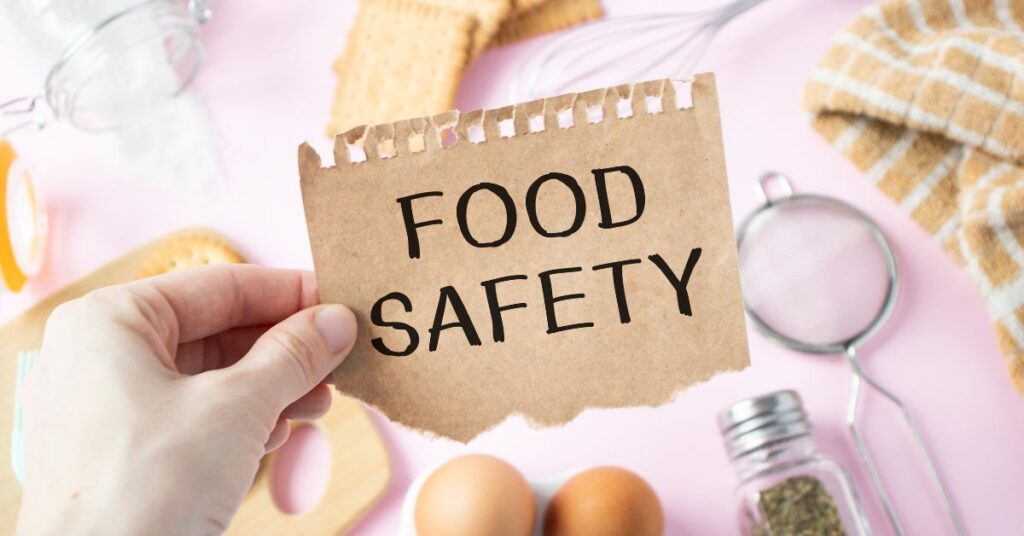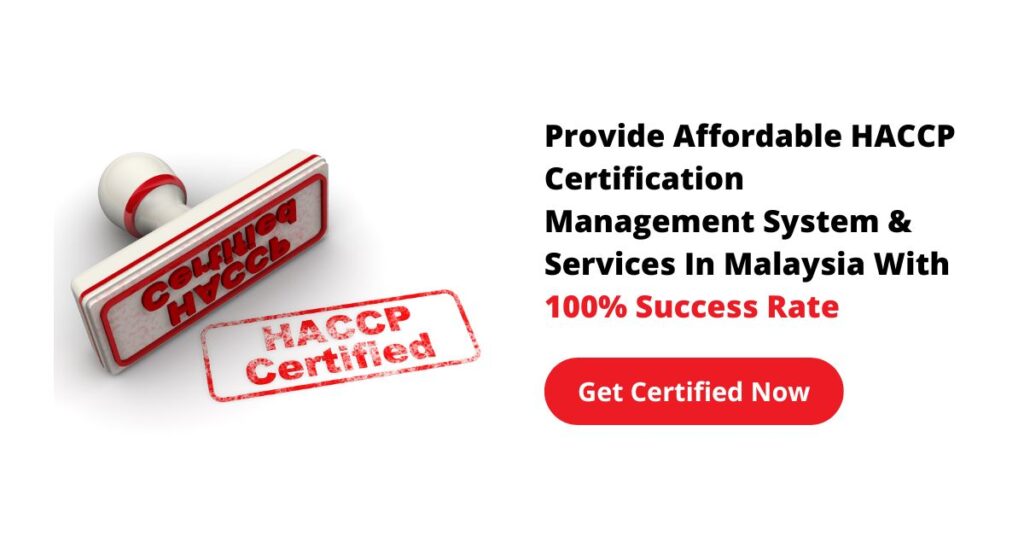Bubble Tea Malaysia and ISO 22000: Delivering Excellence Introduction ISO 22000 is a standard that will be applied by service providers who …
What Is The Importance of HACCP Certification in the Food Industry In Malaysia?
What is the importance of HACCP Certification in the food industry in Malaysia? The reason is simple — food safety is a major concern in the industry, and HACCP can help to manage food safety risks.
Given the difficulties associated with monitoring processes and preventing contamination at every step, it’s no wonder that the food industry is one of the most regulated industries in existence. However, there are many smaller players in Malaysia that have been forced to close their doors due to issues with food safety.
To avoid being one of those statistics, you will want to familiarise yourself with HACCP certification. In this article, we will share the importance of HACCP certification to various sectors in the food industry, including manufacturers, restaurants, retail stores and hotels.
What is the importance of HACCP Certification in the food industry in Malaysia?
Hazard Analysis and Critical Control Points (HACCP) is a systematic process for identifying, monitoring and controlling hazards within the food industry. In a nutshell, food companies can use it to ensure that the food products that they produce and sell are safe for public consumption.
The food safety management system is used across all food industries, from farm to fork, and it can be tailored to suit a wide range of operations.
There are several advantages that your business can gain if you get HACCP certified, including:
- Your customers will feel safe when eating your products.
- You will be able to expand your business.
- You can increase your profits and grow your business.
- Your company can get loans from banks easier.
- You can reduce your risk of contaminating the environment.
HACCP Manages The Risk of Foodborne Illness For Food Manufacturers
Food manufacturing is one of the most regulated industries, and food safety is an ongoing and complex issue. Food facilities should have an effective food safety management system in place that addresses the risk of foodborne illness from farm to table.
HACCP certification provides a food safety standard, by which all food manufacturers can operate. A company that adheres to these standards can minimise the risk of hazards and foodborne illnesses. This is especially important for companies that produce perishable foods, such as meat and dairy products.
By working with a third-party certification body, food manufacturers can authorise their systems and processes and make sure that they are in line with regulatory requirements.
HACCP Helps Restaurants To Ensure Food Quality and Safety
Health hazards are just one of the issues that can affect your business if you aren’t following proper food safety procedures. It also impacts the quality of your food, which is important to customers. Poor food quality isn’t just a hassle; it can drive away your customers permanently.
Cost is also a factor, both in terms of the investment needed to upgrade your equipment and the time it takes to comply with food safety regulations.
However, there are many benefits of implementing HACCP in your restaurant, including:
- Improved food quality
- Enhanced customer experience
- Decreased risk of compliance issues
- Better staff morale
- Reduced operational costs
- Increased profitability
- Increased reputation
HACCP Protects Hotels Against Food Poisoning
If you own or manage a hotel, you know how difficult it can be to keep your guests happy.
Foodborne illness scares are growing more and more common as people become more aware of dangers like E. coli and salmonella. If you aren’t careful about the food you serve and the conditions in which it’s prepared, your hotel could end up with a reputation for unsafe food.
If you take these precautions and implement the principles of HACCP in your kitchen, however, you can significantly decrease the risk of food poisoning among your guests.
By following HACCP guidelines, you can manage food safety risks in your kitchen, protect the health of your guests, and avoid expensive lawsuits.
The core concept of HACCP is managing risk. The idea is to identify hazards associated with your kitchen procedures. From there, you can determine how likely those hazards are to lead to foodborne illness. You then use that information to prioritise your kitchen procedures for improvement. This way, you focus your attention on the procedures that will have the biggest impact on food safety.
HACCP Keeps Grocery Store's Produce Fresh and Safe
One of the biggest challenges for grocery store owners and managers is how to keep their produce fresh and safe for customers. Without a perfect environment, managing stock, inventory, and rotating stock can be tricky. Especially with the risk of harmful bacteria from raw food or other contamination risks.
Besides, there are some common pitfalls that many businesses fail to check for before introducing new products into their stock rotation process.
For example, do you know the right way to check if a fruit has been correctly washed? Do you have systems in place to catch any new batch of potatoes that might be sprouting? How will you make sure red onions aren’t stored next to green onions again? It’s easy to overlook little details when there are so many things on your mind at once.
Without proper a system and practices in place, you might not be able to ensure that your customers are getting only the best from your stock and not any hidden hazards. It would affect your business reputation and sales revenue.
Certified Your Food Business With HACCP Certification
Getting your business HACCP certified is essential if you want to run a successful food business. You can follow the guidelines and principles of HACCP certification to identify, assess, and control your critical food safety points.
The advantages of HACCP certification are numerous. Your customers will feel safe eating your products, and you will be able to expand your business. If you are interested in pursuing HACCP certification, we can help you get certified within 3 months at 50% less cost.
Here are the reasons why you should choose us:
- Provide a digital platform to simplify your documentation and record-keeping process.
- Partner with professional and experienced ISO consultants to guide you throughout the HACCP certification journey.
- Work with various independent certification bodies that are certified by Accreditation Bodies (ABs), such as International Accreditation Services (IAS), Department of Standard Malaysia (DSM), China National Accreditation Service (CNAS) and United Kingdom Accreditation Service (UKAS).
Get Your Food Business Certified
In a Much Simpler and Faster Way!
More resources
Quality in Motion: ISO 9001 Certification for Transportation Services Introduction Transportation services is a business that involves activities of transferring people, goods, …
Enhancing Safety in Petroleum Engineering With ISO 45001 Introduction Petroleum engineering is the job constantly exploring, extracting, and producing oil and gas …




